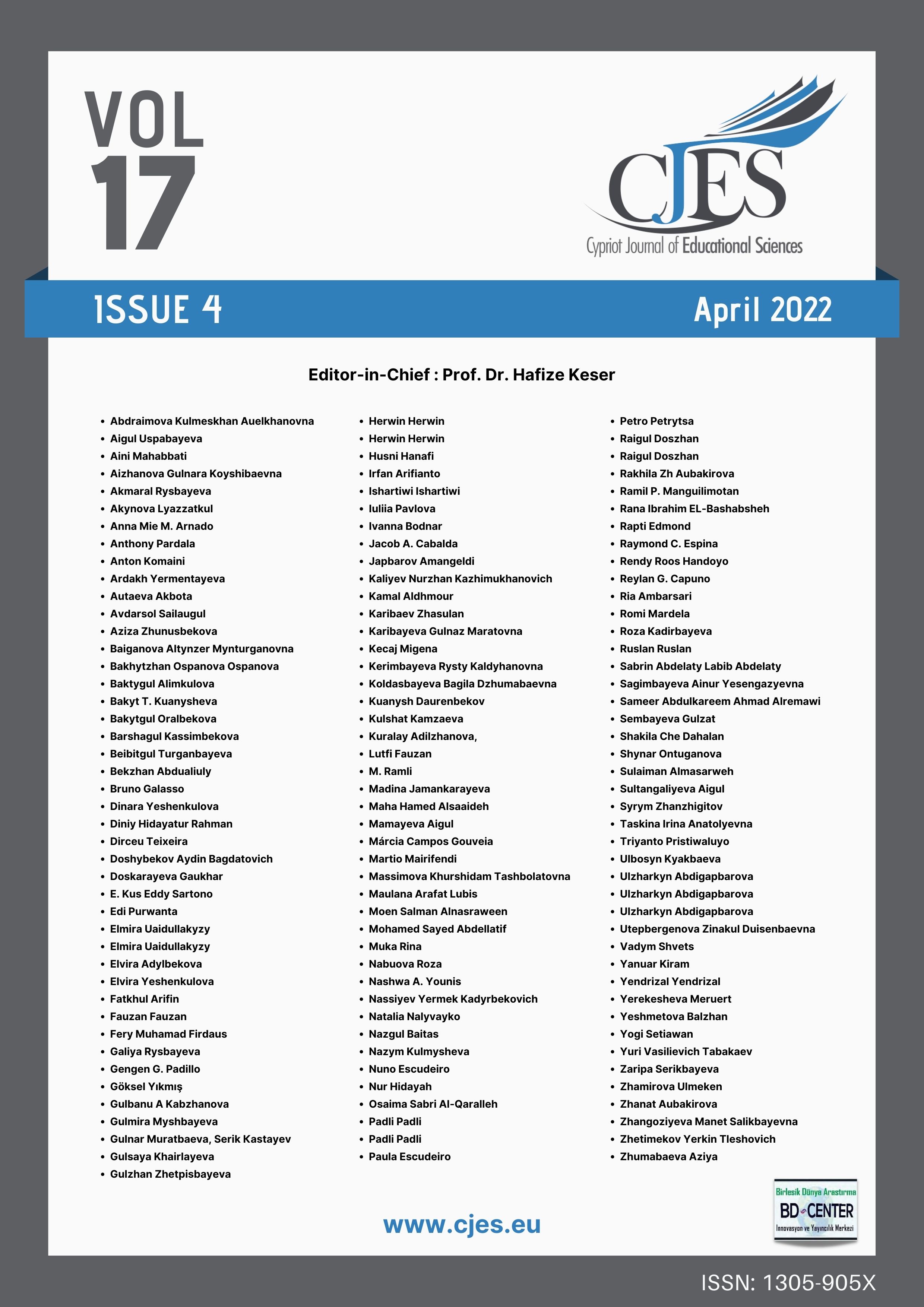Opinions and suggestions of preservice special education teachers on ethical principles
Main Article Content
Abstract
This study aims to explore the opinions and suggestions of preservice special education teachers about the ethical principles that should be followed in the field of special education. The study adopted qualitative methodology. The data were collected through semi-structured interview questions. The participants of the study are senior students who study at the special education department of a faculty education in a university in the Western Black Sea region. One of the prerequisites sought for students is that they have successfully passed all junior year courses and the other is that they have taken the Ethics and Ethics in Education course. The data collected in the study were analysed through content analysis. In addition, the Maxqda programme was used in the analysis of the data. Research findings were categorised under five themes. The themes are ethical principles, ethical characteristics that special education teachers should have, ethical and unethical behaviours, the impact of training and legal regulations on ethics and suggestions of the participants on ethics were collected under the sub-categories.
Keywords: Ethics, ethics in special education, professional ethics.
Downloads
Article Details

This work is licensed under a Creative Commons Attribution 4.0 International License.
Cypriot Journal of Educational Sciences is an Open Access Journal. The copyright holder is the author/s. Licensee Birlesik Dunya Yenilik Arastirma ve Yayincilik Merkezi, North Nicosia, Cyprus. All articles can be downloaded free of charge. Articles published in the Journal are Open-Access articles distributed under a CC-BY license [Attribution 4.0 International (CC BY 4.0)].
Birlesik Dunya Yenilik Arastirma ve Yayincilik Merkezi (BD-Center)is a gold open-access publisher. At the point of publication, all articles from our portfolio of journals are immediately and permanently accessible online free of charge. BD-Center articles are published under the CC-BY license [Attribution 4.0 International (CC BY 4.0)], which permits unrestricted use, distribution, and reproduction in any medium, provided the original authors and the source are credited.

